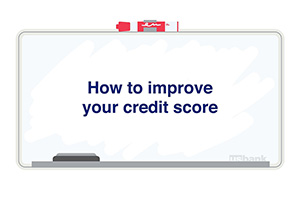
Year-end financial checklist

3 ways to secure purchasing power

Putting home ownership within reach for a diverse workforce

How liquid asset secured financing helps with cash flow

Administrator accountability: 5 questions to evaluate outsourcing risks

Hybridization driving demand

What type of loan is right for your business?

High-yield bond issuance: 5 traits lawyers should look for in a service provider

Programme debt Q&A: U.S. issuers entering the European market

Luxembourg's thriving private debt market

Easier onboarding: What to look for in an administrator

Maximizing your infrastructure finance project with a full suite trustee and agent

3 tips to maintain flexibility in supply chain management

Top 3 considerations when selecting an IPA partner

Insource or outsource? 10 considerations

4 questions you should ask about your custodian

Refining your search for an insurance custodian

Service provider due diligence and selection best practices

Preparing for your custodian conversion

Authenticating cardholder data reduce e-commerce fraud
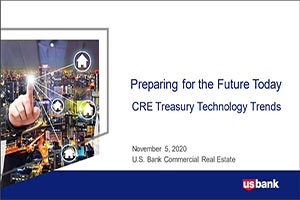
Webinar: CRE technology trends

Complying with changes in fund regulations

Business risk management for owners of small companies

Evaluating interest rate risk creating risk management strategy

Webinar: Approaching international payment strategies in today’s unpredictable markets.

Managing the rising costs of payment acceptance with service fees

Webinar: CSM corporation re-thinks AP

Increase working capital with Commercial Card Optimization

Webinar: AP automation for commercial real estate

Addressing financial uncertainty in international business

5 winning strategies for managing liquidity in volatile times

The surprising truth about corporate cards

The future of financial leadership: More strategy, fewer spreadsheets

Employee benefit plan management: trustee vs. custodian

Choosing your M&A escrow partner

High-cost housing and down payment options in relocation

Why retail merchandise returns will be a differentiator in 2022

Crypto + Relo: Mobility industry impacts

For today's relocating home buyers, time and money are everything
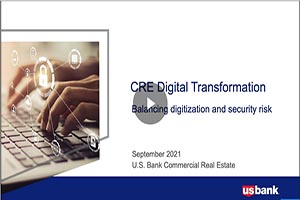
Webinar: CRE Digital Transformation – Balancing Digitization with cybersecurity risk

Empowering team members

10 tips on how to run a successful family business

Streamline operations with all-in-one small business financial support

Business tips and advice for Black entrepreneurs

How to test new business ideas

How to get started creating your business plan

How to establish your business credit score

The role of ethics in the hiring process

8 ways to increase employee engagement

How to reward employees and teams who perform well

How to hire employees: Employee referral vs. external hiring

Give a prepaid rewards card for employee recognition

5 steps for creating an employee recognition program

Checklist: Increase lead generation with website optimization

Omnichannel retail: 4 best practices for navigating the new normal

Is your restaurant Google-friendly?

What you should know about licensing agreements

3 simple brand awareness tips for your business

How a small business owner is making the workplace work for women

The growing importance of a strong corporate culture

Why credit cards should be the first choice for business payments

4 small business trends that could change the way you work

Common small business banking questions, answered

3 signs it’s time for your business to switch banks

Business credit card 101

Meet your business credit card support team

How to apply for a business credit card

What kind of credit card does my small business need?

Do I need a credit card for my small business?

How jumbo loans can help home buyers and your builder business

5 tips to help you land a small business loan

Leverage credit wisely to plug business cash flow gaps

How to establish your business credit score

How to accept credit cards online

Break free from cash flow management constraints

5 tips for managing your business cash flow

5 ways a business credit card program can grow your business

Improve online presence your business

How Shampoo’ed is transforming hair and inspiring entrepreneurs

The San Francisco bridal shop that’s been making memories for 30 years

How Al’s Breakfast is bringing people together

In a digital world, Liberty Puzzles embraces true connection

Celebrity Cake Studio’s two decades of growth and success

How a travel clothing retailer is staying true to its brand values

How to build a content team

Use this one simple email marketing tip to increase your reach

How (and why) to get your business supplier diversity certification

5 financial goals for the new year

Good debt vs. bad debt: Know the difference

How to build credit as a student

5 myths about emergency funds

Tips to overcome three common savings hurdles

How having savings gives you peace of mind

Helpful tips for safe and smart charitable giving

Allowance basics for parents and kids

What’s your financial IQ? Game-night edition

How to choose the right rewards credit card for you

Things to know about the Servicemembers Civil Relief Act

Common unexpected expenses and three ways to pay for them

5 reasons why couples may have separate bank accounts

30-day adulting challenge: Financial wellness tasks to complete in a month

5 tips to use your credit card wisely and steer clear of debt

Travel for less: Smart (not cheap) ways to spend less on your next trip

Real world advice: How parents are teaching their kids about money

How to stop living paycheck to paycheck post-pay increase

Practical money tips we've learned from our dads

6 ways to spring clean your finances and save money year-round

How to cut mindless spending: real tips from real people

How to increase your savings

Are you ready to restart your federal student loan payments?

Consolidating debts: Pros and cons to keep in mind
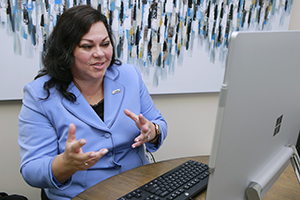
How to talk to your lender about debt

Which debt management technique is right for you?

Everything you need to know about consolidating debts

5 tips to use your credit card wisely and steer clear of debt

5 steps to selecting your first credit card

How to use debt to build wealth

What’s a subordination agreement, and why does it matter?

Understanding the true cost of borrowing: What is amortization, and why does it matter?

7 steps to keep your personal and business finances separate

Know your debt-to-income ratio

How to pay off credit card debt

How to use credit cards wisely for a vacation budget

Your quick guide to loans and obtaining credit

Dear Money Mentor: How do I begin paying off credit card debt?

Money Moments: How to finance a home addition

These small home improvement projects offer big returns on investment

Should you get a home equity loan or a home equity line of credit?
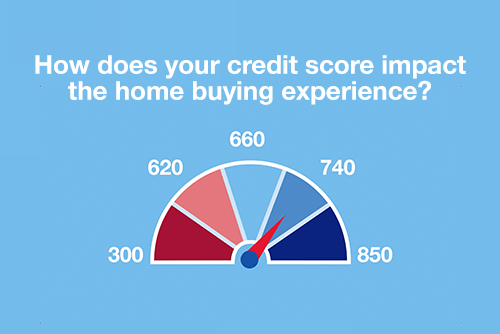
Mortgage basics: How does your credit score impact the homebuying experience?

Is a home equity line of credit (HELOC) right for you?

How to use your home equity to finance home improvements

Can you take advantage of the dead equity in your home?

4 questions to ask before you buy an investment property

10 uses for a home equity loan

How to request a credit limit increase

What applying for store credit card on impulse could mean

Improving your credit score: Truth and myths revealed

How to spot a credit repair scam

6 essential credit report terms to know

5 unique ways to take your credit card benefits further

Myth vs. truth: What affects your credit score?

Test your loan savvy

Decoding credit: Understanding the 5 C’s

Credit: Do you understand it?

How to build and maintain a solid credit history and score

Should you give your child a college credit card?

U.S. Bank asks: What do you know about credit?

What types of credit scores qualify for a mortgage?

What is a good credit score?
